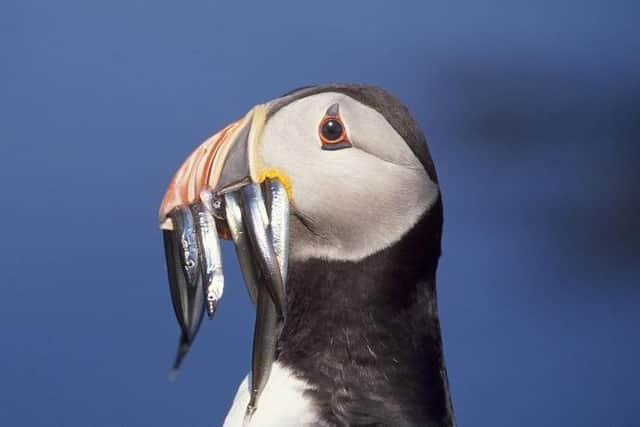Calls for urgent plan to address 'virulent strain' of bird flu 'devastating seabird colonies'
and live on Freeview channel 276
"We are witnessing the potential decimation of seabird populations on a scale that has not been seen before in our lifetimes. We are as a result gravely concerned for seabird colonies in Ireland," the lobby group said.
In a statement issued as DAERA confirmed the discovery of avian flu among seabirds on Rathlin, BirdWatch Ireland said: "We believe that it is only a matter of time before a wild bird is tested positive by Department of Agriculture, Food and the Marine (DAFM) veterinary staff, but casual sightings indicate that the disease is probably present in our wild birds already.
Advertisement
Hide AdAdvertisement
Hide Ad"Highly Pathogenic Avian Influenza (HPAI) has the potential to spread rapidly in breeding seabird colonies, as seabirds gather in high numbers and in close proximity to lay eggs and rear chicks on Irish cliffs, headlands and islands.


"Ireland’s seabirds are of international importance. Rockabill Island off the coast of Skerries in north Co. Dublin holds up to 80% of Europe’s breeding Roseate Terns; the Kilcoole, Co. Wicklow Little Tern colony holds 40% of Ireland’s Little Tern population; Manx Shearwater occurs on just a handful of colonies; and sites such as Great Saltee hold internationally important breeding seabird populations, including Gannet, which has been impacted particularly severely.
"Twenty-three of Ireland’s twenty-four breeding seabirds are already Red- or Amber-Listed Birds of Conservation Concern [see Birds of Conservation Concern in Ireland https://birdwatchireland.ie/birds-of-conservation-concern-in-ireland/], with Puffin and Kittiwake globally threatened. The Irish Government must act very quiclky and take the threat posed by HPAI to our seabird populations seriously.
Dr. Stephen Newton, Senior Seabird Conservation Officer with BirdWatch Ireland, said, “Ireland is internationally important within Europe for a lot of seabirds. We hold the biggest European colonies of some species. The Roseate Tern on Rockabill would be one, where we have up to 80 per cent of the European population on one little island.”
Advertisement
Hide AdAdvertisement
Hide Ad“It’s frightening,” Dr. Newton continued. “There are three or four species where virtually the whole of the Irish, or sometimes the whole of the European, population nest at just one or two sites. Our big fear is that these could be wiped out completely.”
A coherent and coordinated response from government to the threat of HPAI is urgently required. Stakeholders with the relevant knowledge and responsibilities, including the Department of Agriculture, Food and the Marine, the National Parks and Wildlife Service and BirdWatch Ireland, should be convened as soon as possible to develop an appropriate response plan.
Comment Guidelines
National World encourages reader discussion on our stories. User feedback, insights and back-and-forth exchanges add a rich layer of context to reporting. Please review our Community Guidelines before commenting.
